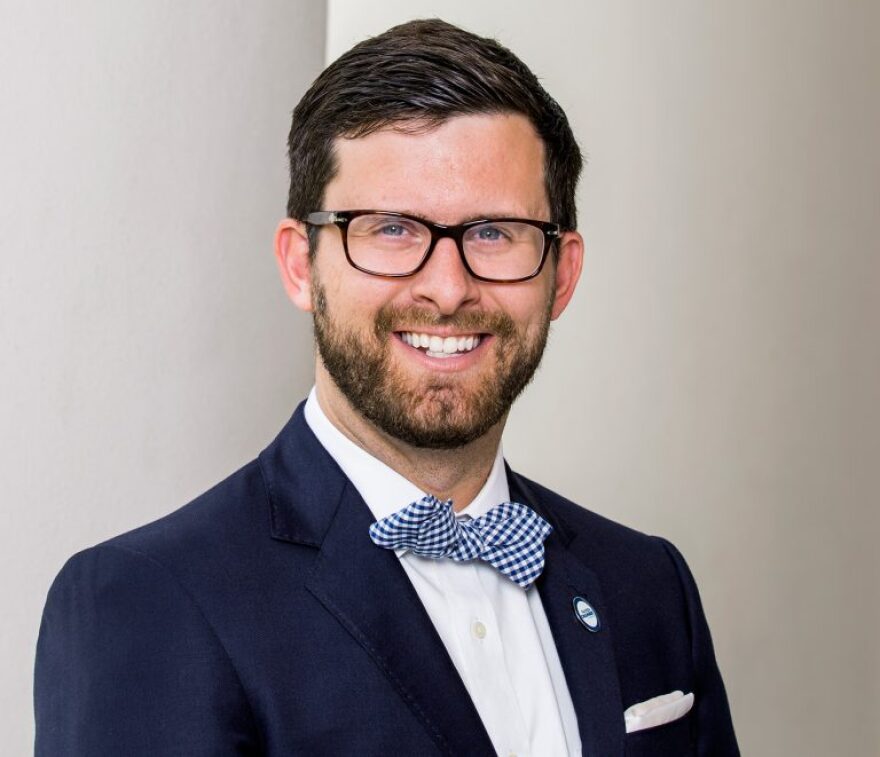Planning is continuing on building three new toll roads, which would become the biggest road construction project in Florida since the Interstate Highway system was built.
The plan would expand the Suncoast Parkway from the Tampa Bay area to the Georgia border; extend the Florida Turnpike west to connect with the Suncoast Parkway; and add a new multi-use corridor, including a toll road, from Polk County to Collier County.
In a twist from the ways roads are usually built, this idea came not from transportation planners, but from Senate President Bill Galvano of Manatee County.
Opponents call it the "Roads to Ruin." Supporters say it'll bring prosperity and broadband to rural areas that have been bypassed by the state's growth.
You can also read a report on the Suncoast Parkway addition by the nonprofit group Florida TaxWatch.
We talk with Lindsay Cross of St. Petersburg, government relations director for the nonprofit group Florida Conservation Voters; Ananth Prasad, former Secretary of the Florida Department of Transportation, who is now the President of the Florida Transportation Builders’ Association; and Chris Emmanuel, Director of Infrastructure and Governance Policy for the Florida Chamber of Commerce.
Here’s an excerpt from the show, first from Lindsay Cross, government relations director for the nonprofit group Florida Conservation Voters.
The Florida Department of Transportation and the legislature throughout this process have failed to demonstrate that these roads are needed. We're concerned about how this may be putting other priority infrastructure projects on the back burner. And really getting away from the true needs that we have.
We've actually done an analysis of public comments that were received by DOT, that hadn't been shared yet with the public or the task force members. And what we found is that about 88 percent of the people who took the time to comment are against these roads and are hoping for a no-build option. So that is something that we think needs to be on the table and that the task force numbers need to strongly advocate for.

Are the comments that you've seen mainly environmental or fiscal reasons?
There's a whole suite of issues that people bring up in their comments. We've known from the start that this project will be bad for water, it'll be bad for wildlife, for agriculture - which is one of our top three industries in the state - bad for these rural communities that want to maintain those rural lifestyles and really bad for the taxpayers. So people are talking about the impacts to the springs and aquifers. They talk about how this could really be the nail in the coffin for the Florida Panther, our state animal.
Some of these people in rural communities are concerned if there's a big highway that's built isn't going to bypass their local downtowns and take business away from those small mom and pop shops or those restaurants that have been there for years. That's not what they want.
Ananth Prasad is a former Secretary of the Florida Department of Transportation, who is now the President of the Florida Transportation Builders’ Association.
The legislature set a goal of the beginning construction in 2022 and completing it by 2030. I think a lot of people kind of react to this like, 2022 means we're going to build all of the road’s hundreds of miles now. That's just the beginning of probably one segment of construction in some part of along the corridor.

And the one other thing is by law, the DOT has to study a no-build option. So while there's a lot of uneasiness about the task force wanting to debate that aspect, that is not the purview of the task force. It is the Department of Transportation decision. Every project in this country goes through that process. The burden is going to be on the department to prove that there is a need for these roads.
Chris Emmanuel is Director of Infrastructure and Governance Policy for the Florida Chamber of Commerce.
Florida accepts about 900 new people every single day. To put that in perspective, that's roughly the same amount of people that live in the city of Orlando, moving to Florida every year. Research at the Florida Chamber Foundation indicates that we're going to see about three million new vehicles on the road from just Floridians driving around.

Tourism is the lifeblood of Florida economy. And at some point tourism is going to rebound. We've seen tourist numbers that are just phenomenal – 120 million, 130 million people coming here every single year to visit.
The next big trend we've seen is that a lot of the economic prosperity that's happening in our state is happening within our city centers. And the more that you connect those growing cities and that economic opportunity, the better it is for everyone, both the folks that are living there in the cities and in the rural areas along those connected routes.
Now's the right time to have the pretty bold conversation and what kind of corridors do we need in the 2030s, 2040s and 2050s, for Florida to maintain the quality of life that we have today.





